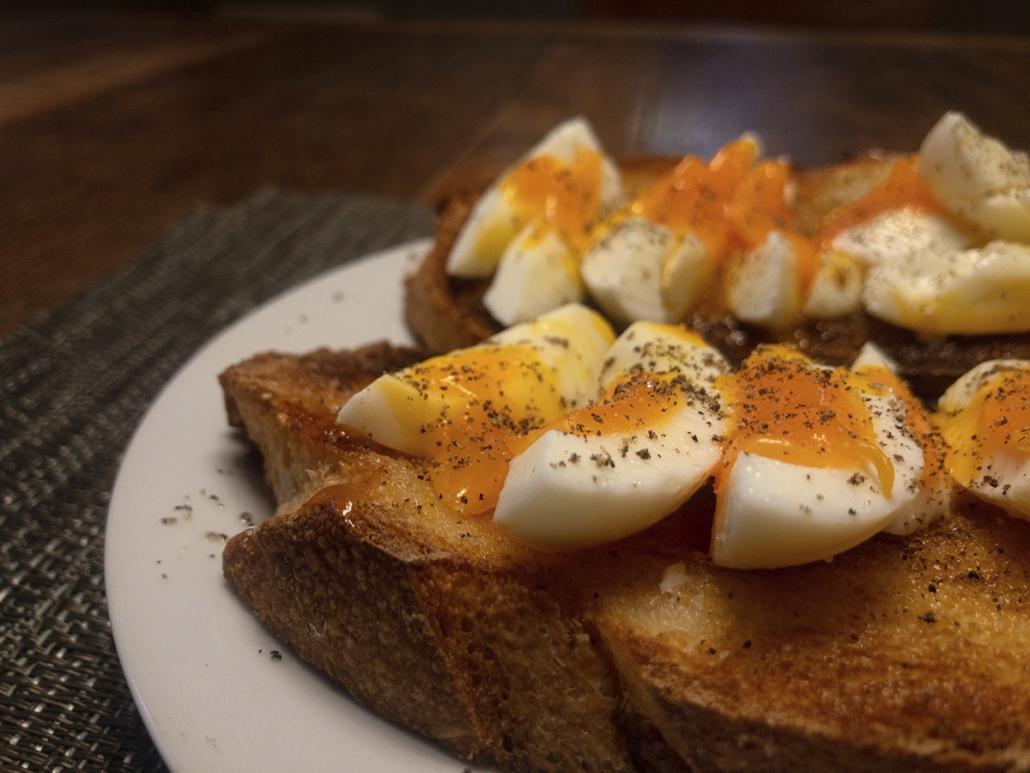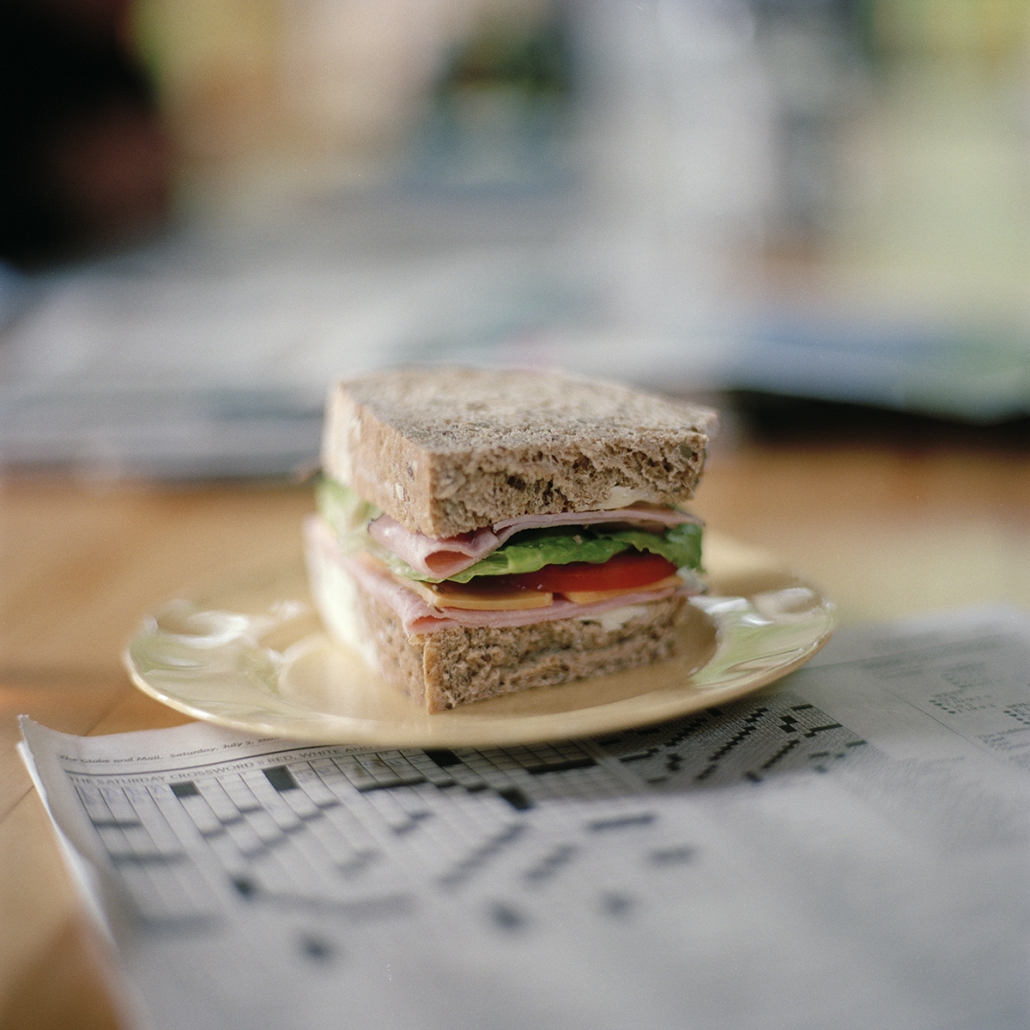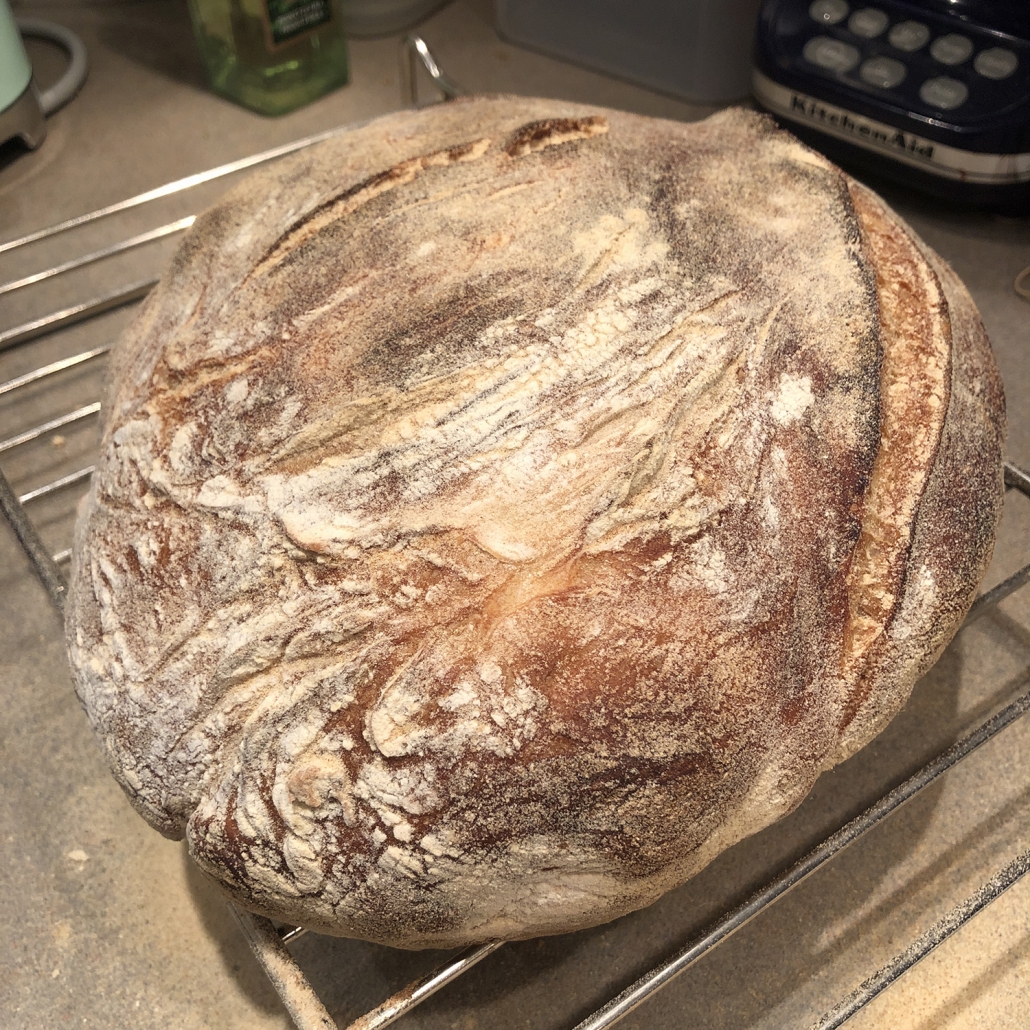
I’ll be brief. Eggs. Toast. Salt. Pepper. Breakfast.
And a little background… Empires have been torn apart over the appropriate way to boil an egg. Do you put the egg in cold water and bring it to the boil? Or drop it into boiling water? 3 minutes? 7 minutes? Both techniques have pros and cons (cold water won’t break open a cold egg and have it spill everywhere; water that is already boiling doesn’t have to be watched so carefully to see when it’s actually boiling before you start the clock.
Wait. Maybe I’m not making sense.
Two egg cooking techniques exist:
- One is where you put an egg into a pot of cold or lukewarm water. You turn on the heat and once the water starts boiling, you set your timer for 3 minutes. This is how my father and my sister boil an egg.
- The other is where you boil the water and then drop in the egg for 7 minutes, while the pot simmers away. This is my wife’s technique.
I use my wife’s technique, because I see her in the morning more often than I see my dad or my sister.
But the rest of the recipe is easy. Good piece of toast – hot out of the toaster (unless you’re my dad who likes his toast cold) bit of butter… Peel the egg, chop it roughly, sea salt and pepper. Enjoy.
Breakfast of champions because it’s almost as quick as a bowl of cereal and it’s different than cereal. Variety being the spice of life and all that…


